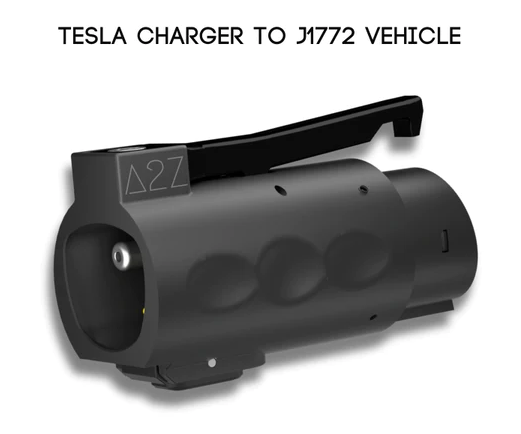I have one of these J3400 to J1772 adapters so I can connect my Hyundai to a Tesla destination charger. They’ll probably get more popular as J3400 becomes the primary standard:

I’m curious what would actually happen if someone were to use such an adapter with a J3400 DC fast charger. I know it can’t possibly work because the DC charging pins are connected to the vehicle’s AC pins, but is there something in the J3400 standard to notice and reject such an adapter before DC voltage is applied?
I’m not sure if J1772 vs. CCS1 adapters contain anything that the signalling protocol could use to identify which is which. If the DC charger were required to passively measure the battery voltage before sending any power, that would probably avoid the “magic smoke” problem, but does the standard guarantee that this will happen?
If I understand it correctly, J3400 requires bidirectional data link with the car before connecting DC current. J1772 is a simpler pilot voltage/resistance value across the two signal pins, which the DC charger won’t recognize. So, nothing would happen if you plugged that adapter into a DC charger.
How would the J1772 adapter force the vehicle or charger to speak the J1772 protocol? Both ends support the CCS protocol and the adapter is presumably passive.
They should have a literal rating for Level 1, 2 or 3 charging when you buy it. MOST of these only handle level 2 charging at 80A. I highly doubt there’s many if any that can do Level 3 and not cause magic smoke to appear, but I could be wrong as I haven’t looked at them since I bought a SyncWire adapter for Level2 charging at Tesla stations.


